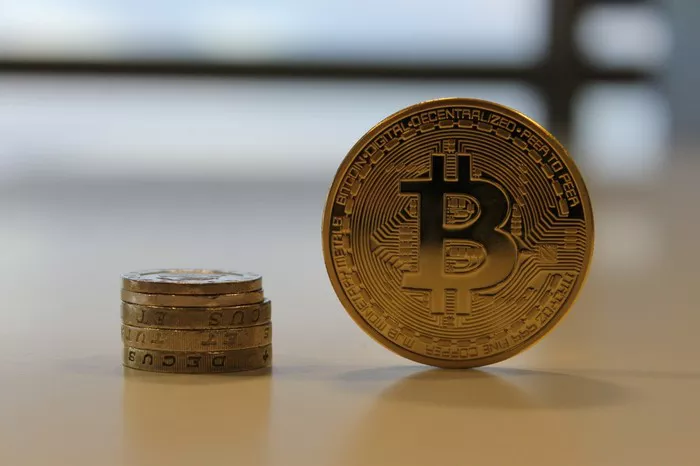Cryptocurrency giant Tether, known for its stablecoin USDT, has announced plans to move its headquarters to El Salvador. This marks a significant shift for the company, as it seeks to capitalize on the Central American country’s push to become a hub for cryptocurrency trading. Tether’s CEO, Paolo Ardoino, confirmed that the firm will not only relocate its headquarters but that he and other key managers will also move their residences to El Salvador.
This move comes after Tether received a digital asset service provider license from the government of El Salvador. Previously incorporated in the British Virgin Islands, Tether’s decision to move to El Salvador signals a growing interest in establishing a physical presence in a country that has become a beacon for cryptocurrency adoption.
Ardoino explained, “This move to El Salvador will be the first time we’re going to have also a physical headquarters,” indicating the significance of the decision. While the company plans to move its leadership, not all of Tether’s 100-plus employees will relocate to El Salvador. The company also aims to hire 100 Salvadorans over the next several years, expanding its local footprint.
El Salvador’s Crypto-Friendly Environment
El Salvador’s growing reputation as a crypto-friendly nation stems from its decision three years ago to make Bitcoin legal tender alongside the U.S. dollar. President Nayib Bukele has been an outspoken advocate for cryptocurrency and has encouraged businesses to consider El Salvador as a base for their operations. The country has attracted global attention, especially after becoming the first nation to officially adopt Bitcoin, offering a unique environment for crypto firms looking to tap into the industry’s potential.
In a show of support for Tether’s decision, Bukele welcomed the firm’s move on social media, saying, “Welcome home.” Bukele has also extended similar invitations to other businesses, including Chris Pavlovski, the CEO of Rumble, who was asked to consider relocating his platform’s headquarters to El Salvador. This further reflects the country’s ambition to be a global leader in the digital currency space.
Tether’s Role in the Stablecoin Market
Tether has solidified its position as one of the most significant players in the cryptocurrency market. Its dollar-pegged stablecoin, USDT, accounts for roughly two-thirds of the $212 billion stablecoin market, making it a crucial component of the broader digital asset ecosystem. Stablecoins like USDT are pegged to traditional currencies, offering users a way to move funds between cryptocurrencies while avoiding the extreme volatility that often plagues the crypto market.
Despite its prominence, Tether has faced regulatory scrutiny, particularly concerning the transparency of its reserves. The firm has been questioned about the composition and safety of its reserves, as it does not fully disclose where and in what form its assets are held. Tether maintains that the majority of its reserves are backed by traditional currency and held with Wall Street brokerage Cantor Fitzgerald.
CEO Paolo Ardoino stated, “The vast, vast majority of the T-Bills are in Cantor,” confirming the firm’s reliance on the brokerage for securing its reserves.
Regulatory Challenges and Future Outlook
As the stablecoin market grows—up around 45% in the last year—regulators globally have raised concerns over the potential risks to the financial system posed by the rapid expansion of stablecoin reserves. Stablecoins act as a bridge between the cryptocurrency universe and the traditional financial system, which has prompted calls for stricter oversight.
While Tether has pledged to increase monitoring of its tokens to combat illicit activities, it faces challenges in navigating regulatory environments in different regions. Ardoino noted that the company does not have a license to operate in the European Union and has ruled out the United States for now. Given the uncertainty surrounding the U.S. regulatory landscape, especially with President-elect Donald Trump’s plans to introduce a more crypto-friendly regulatory environment, Tether’s shift to El Salvador may offer a more stable and supportive regulatory environment.
El Salvador’s Growing Influence in Crypto
Tether’s move aligns with El Salvador’s broader ambition to position itself as a key player in the global crypto market. The country’s embrace of digital currencies has already led to notable developments, including partnerships with major firms and the establishment of Bitcoin as legal tender.
With the backing of President Bukele, who has consistently advocated for a digital currency revolution, El Salvador is positioning itself as an attractive destination for companies in the cryptocurrency and blockchain industries. By offering licenses and creating a regulatory framework conducive to crypto business operations, El Salvador is building a reputation as a place where innovation in the digital finance space can thrive.
Tether’s Future in El Salvador and the Crypto Ecosystem
Tether’s relocation is just one example of how the shifting global regulatory landscape is shaping the future of cryptocurrency. With companies like Tether and other crypto entities seeking favorable jurisdictions, El Salvador is emerging as an essential hub for digital asset innovation. The move is not just symbolic—it signals a growing trend of crypto firms prioritizing nations that are actively working to integrate cryptocurrencies into their financial systems.
For Tether, the move represents a chance to build closer ties with a forward-thinking government that is eager to see the crypto market flourish. As the company continues to expand its operations and local hires in El Salvador, it will be interesting to see how other crypto firms respond and whether other nations will begin to follow El Salvador’s example in offering more regulatory clarity for crypto businesses.
Conclusion
Tether’s decision to move its headquarters to El Salvador reflects the country’s growing role in the global cryptocurrency ecosystem. By providing a friendly regulatory environment for digital assets, El Salvador is attracting leading crypto companies like Tether, which is poised to expand its influence in the stablecoin market. As other nations look to adapt to the evolving world of digital finance, El Salvador may set the standard for future crypto-friendly policies that encourage innovation and investment in the sector.
Related topics:
























